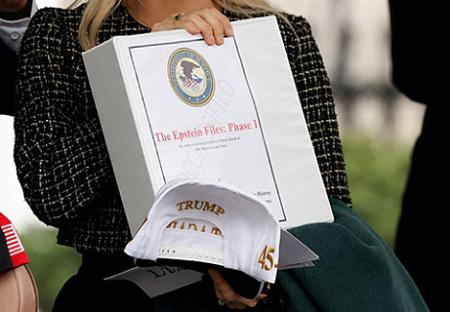
President Donald Trump is facing a period of intense political pressure as new opinion polls reveal a steady decline in his approval ratings. This downturn is compounded by the growing fallout from the Jeffrey Epstein affair, a scandal now directly threatening to alienate his most loyal supporters and create fissures within the Republican party.
Data aggregated by Realclearpolitics from numerous national polls in July paints a stark picture for the administration. On average, only 46.3% of respondents approve of the president’s performance, while 51.4% disapprove. This erosion of support is particularly acute among independent voters, a crucial demographic for electoral victory, with 62% now holding an unfavorable view of the president. This trend poses a significant threat to the Republican party’s prospects in the upcoming midterm elections, where losing control of Congress could paralyze Trump’s legislative agenda.
Public dissatisfaction extends across nearly every major policy area, from the economy and inflation to immigration. The president’s foreign policy is also under fire, with his handling of the Russia-Ukraine conflict proving particularly unpopular. A Gallup poll indicated that 59% of Americans disapprove of his approach, leading to speculation that Trump’s recent ultimatum towards Russia was a calculated move to shore up his political standing at home.
However, it is the shadow of the Epstein scandal that looms largest over the White House. The case resonates deeply with Trump’s core “MAGA” base, many of whom are drawn to conspiracy theories about a corrupt elite. The president’s unfulfilled campaign promise to release the “Epstein files”—a supposed list of high-profile clients of the deceased sex trafficker—is now a source of growing disillusionment among these very supporters.
The controversy has intensified following the recent transfer of Ghislaine Maxwell, Epstein’s accomplice, to a lower-security prison. This has fueled widespread speculation that a deal is being brokered: a presidential pardon for Maxwell in exchange for testimony that selectively implicates only Trump’s political enemies. This narrative of a potential cover-up has become so pervasive it has triggered a backlash from within the GOP itself.
In a rare display of internal dissent, prominent Republican lawmakers have publicly urged the president to be cautious. Senator Thom Tillis warned that Maxwell, having been convicted of perjury, cannot be trusted, stating, “I don’t think her testimony is worth the paper it’s written on because she is a liar.” Trump himself has added to the ambiguity, stating he has not been asked for a pardon while simultaneously reminding the public that the power to grant one rests firmly within his presidential authority, leaving the explosive issue unresolved and politically volatile.
